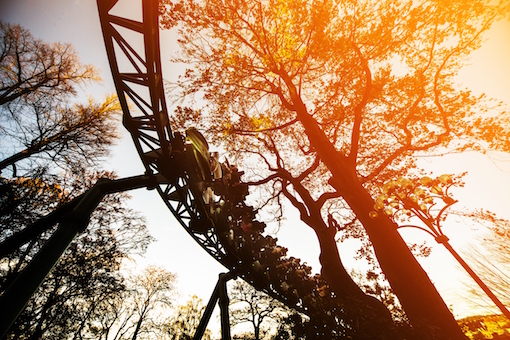
Halloween, check. I am going to miss meeting evil clowns in the staff restaurant and zombies on my way to HR. But in a few weeks, Christmas choirs and elves will move into the hallways. Paper snow will stick to my shoes everywhere I go, and carols will be playing in a loop outside my office, driving me crazy.
However, it is also that special time of year that every economist looks forward to. Budget time. Which is a rather complex task in 2021.
But even though most parameters are uncertain this year, I do believe we are starting to see the contours of our post-pandemic operational environment. Some common themes emerge, of which I think four are of particular interest:
Less is more
Historically, our industry has been extremely volume driven. And I have always argued, that this can be a dangerous KPI if it stands alone. I believe that most parks’ natural equilibrium – where volume, guest satisfaction and profitability all are maximized – probably is a lot lower than we think.
The last couple of years has shown us that there is a very strong correlation between guest satisfaction and number of guests. We always knew it was there, but maybe not this strong. And we have experienced that fewer guests can actually drive a higher revenue.
Less can indeed be more.
Accelerated digitalization
The digital realm impacts everything we do. The way we communicate to our guests, the way we sell and distribute our product, and the product itself, integrating digital solutions into the experience.
We sold 100% of our tickets online at Liseberg in 2021, and I am not sure we will ever completely go back to the days of selling tickets at the gate. We have also fast-tracked (no pun intended) digital queuing solutions, that may not have cracked the code to queuing, but nevertheless are important steps in facilitating and improving the guest experience.
Compared to many of our colleagues in the leisure industry, location based entertainment has been falling behind when it comes to digitalization of its services. This will change. Again, reinforced by the pandemic.
New operational models
With better capacity management and accelerated digitalization, we see the emergence of new operational models. The last couple of years has shown us that seasonality and weather dependence can be countered with booking systems and new pricing models.
At Liseberg guest numbers during the otherwise very volatile 2021 summer season varied with only a few hundred day-by-day. And although capacity restrictions are not great for volume, it is great for planning. No weather effect. No fluctuations in turnover. No variations in staffing.
Every day is the same. And that is a completely different way of operating.
The post-pandemic workplace
Staffing has been challenging in the reopening of most of the leisure industry. But while we are discussing new hybrid models for back-of-house staff, I think the pandemic has accelerated underlying trends when it comes to our front-of-house colleagues.
These are often younger, seasonal staff. And we as an industry are a little bit like the canary in the coal mine; we experience this new generation of employees first.
What particularly characterizes this Generation Z is that autonomy, variation, recognition, feedback, sense of belonging and meaning-making is becoming increasingly important. And the pandemic has just augmented these expectations of us as employers.
In my opinion, we will have to change the way we look at ourselves as workplaces . We have to be extremely aware of – and carefully communicate – our purpose. And that purpose can’t just be making money. At the same time, we must understand that a job for these young people may as much be part of an identity project, as it is a means to earn a salary. We are not just a workplace – we are a community.
…
The location based entertainment industry is in transition right now. In the middle of a re-set. Which is extremely challenging, but also exciting. And I remain quite optimistic.
Few other industries have better tools in the toolbox to re-invent ourselves and adapt to what comes after.
Andreas



Great post Andreas, so looking forward to being back in the Spring.